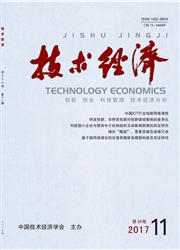

 中文摘要:
中文摘要:
根据“中国最佳雇主Top100”的排名结果,采用统计方法将声誉排名量化,并以净资产收益率和主营业务资产收益率作为上市公司效益的代理变量,采用相关分析和多元回归分析方法,利用样本上市公司的数据,对公司声誉和公司效益之间的关系进行实证检验。研究显示:公司声誉可促进公司后期效益的提升;获得声誉的公司的盈余持续性较强;声誉能够降低公司后期财务效益对前期财务效益的敏感程度和依赖性。
 英文摘要:
英文摘要:
According to ‘Chinese Best Employers Top100' ,this paper uses a statistical method to quantify the reputation ranking. And taking ROE and CROA as the agent variables of benefits of listed companies,it empirically studies the relationship between company's reputation and company's benefit through the correlation analysis and the multiple regression analysis. The result shows as follows:companyrs reputation helps to improve the increasing of late benefits;company's reputation could enhance company's earning persistent;reputation could reduce the sensitive degree and the dependence of late financial benefit to the previous.
 同期刊论文项目
同期刊论文项目
 同项目期刊论文
同项目期刊论文
 期刊信息
期刊信息
